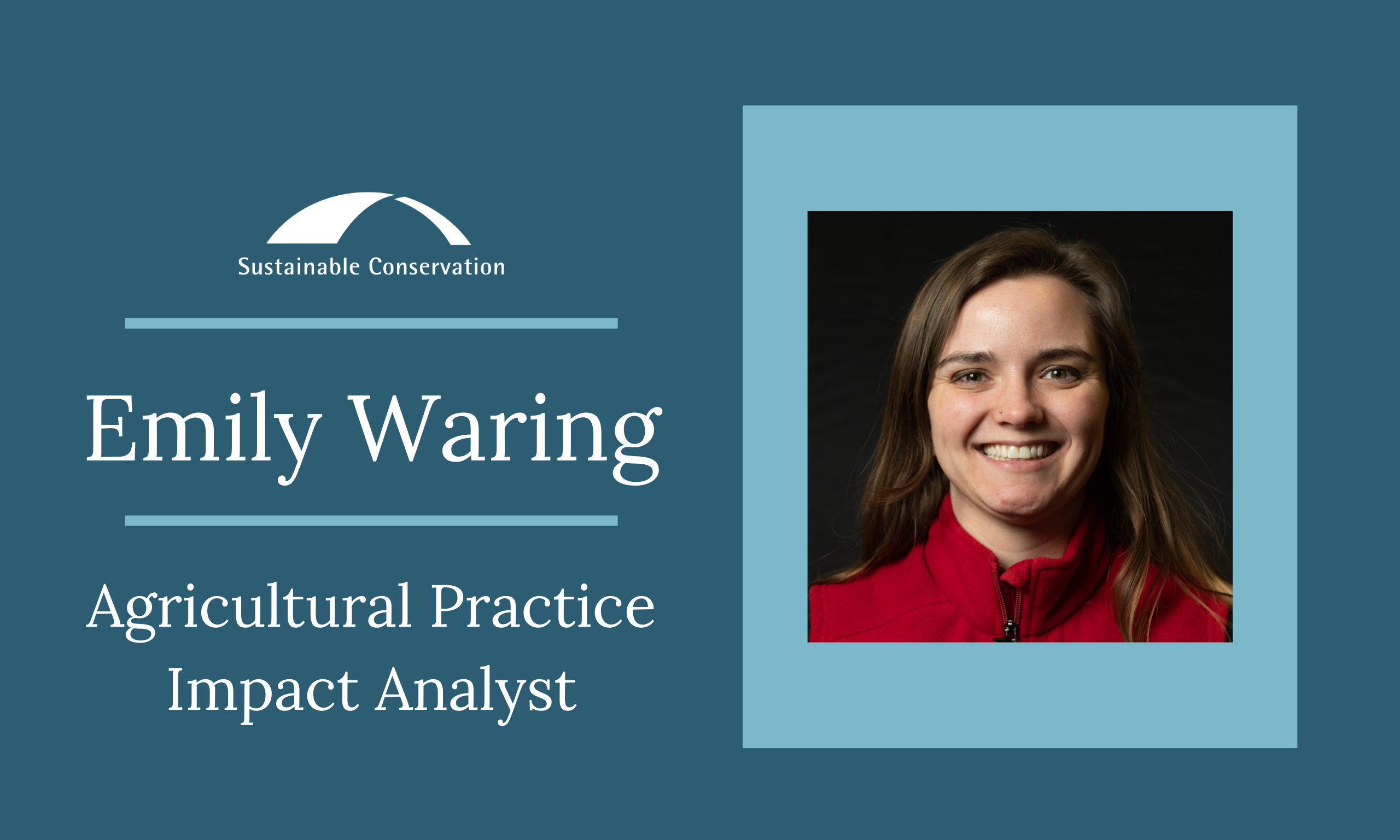
Emily Waring joins the Dairy Team as the Agricultural Practice Impact Analyst. After receiving her MS and PhD in Agricultural and Biosystems Engineering from Iowa State University, Emily moved to the Central Valley in 2022 to expand her research to more diverse, water-scarce systems. She has worked with nutrient and water data at many scales (field, watershed, regional) and in many agricultural contexts. She aims to address agricultural and environmental tensions through a holistic and grower-focused approach.
What attracted you to this specific role and work?
I interacted with Sustainable Conservation through my previous role at UC Merced when they led the convenings on cover crops and water use. I thought those events — and the initiatives following it — were science at its best, because they addressed the frustrations and realities of research. We’re often siloed, and it’s hard to see how our work is being built upon. Those initiatives brought together many voices to discuss practical solutions and conclusions.
I was drawn to this position at Sustainable Conservation because it was addressing the challenge of upscaling conservation practices and also our conclusions about their impacts. I was also drawn to SusCon in general because it has a reputation of being grower-focused and very practical. This particular role fits very well with my PhD work, where I studied nitrogen management through soil and water conservation practices. It felt like it was a serendipitous job description.
How do you think you will lend a unique perspective to our work?
I’m a middle child, so I can always see multiple sides to a situation. Our work often doesn’t have a super clear answer or an approach that everyone can necessarily agree upon. I think this skill is useful, and I look forward to using it in this role as we explore environmental and agricultural issues.
What project are you most excited to get started on?
I’m going to work on the Manure Subsurface Drip Irrigation (MSDI) system and expanding it to dairies that are diversifying and adapting the system to non-forage crops. It is incredibly exciting to work with a system where manure can be used as the resource that it is! I am also excited to spend time on California dairies and gain more hands-on knowledge about the industry.
What’s one thing about agriculture or water that you want the average Californian to know?
The potential to address climate issues largely lies within agriculture. For the most part, urban areas and non-agricultural sectors have maximized their efficiencies. However, it can often be difficult for growers who want to prioritize sustainability to do so practically or economically. The average consumer can help support climate-conscious growers by buying from local and diversified food systems when we are able, which sometimes means paying more for our food.
How do you unwind outside of work?
I really like to go to the mountains. I live in the Central Valley, and part of the reason I love it so much is because we are so close to the mountains. I just love the Sierras, especially the stark difference when you drive from the flat, expansive, agricultural valley through the foothills and up to the peaks. I’m really excited and grateful to be hiking the John Muir Trail in August!
